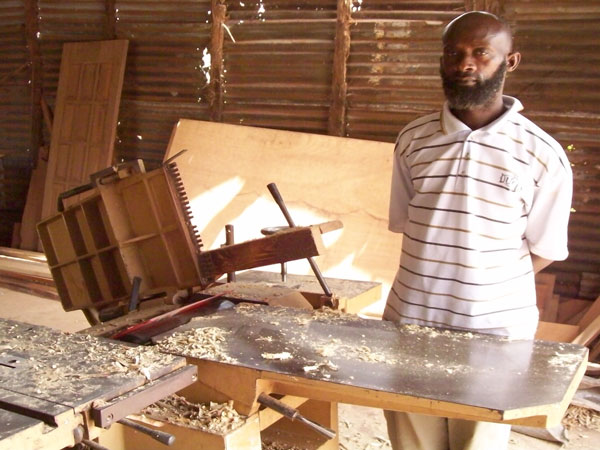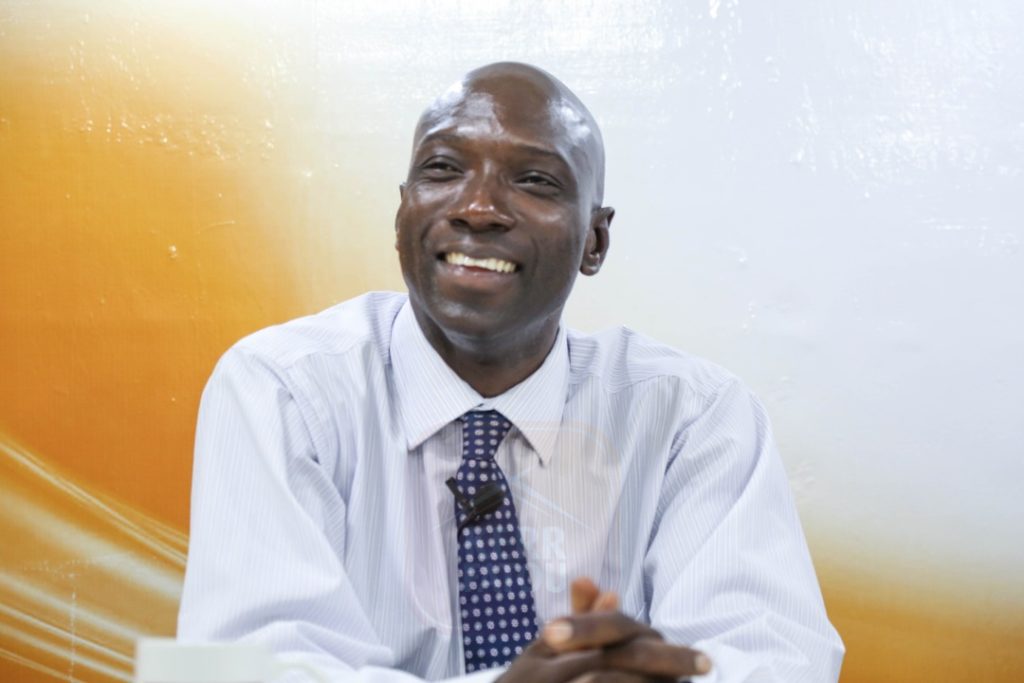By Momodou S Sidibeh
Stockholm / Kartong
It takes a great deal of courage and brazen dishonesty to allude the death of so many children to fate but not to criminal negligence and callous incompetence. As the Gambian nation deeply mourns this unconscionable loss of so many infant lives, the grief must instigate deep soul-searching and a solemn but objective introspection of the state of the contractual relationship between citizens and those who, through popular will, have been elected to govern. But it must also generate the impulse for accountability and transparency, without which mistakes, faults, and fraud remain masked.
We ought not only dismiss the tendency to deploy that Gambian propensity for pretentious piety, but we must also dig into those factors and forces behind the business transactions, the bureaucratic explanations, the hideous official narratives, the careful commentaries, and the semi-religious cover-ups, that all seek primarily to absolve of responsibility those individuals, businesses, and institutions of state whose foremost duties involve the protection of Gambian lives. We need to explore the President’s Office and its response to the tragedy as well as the Ministry of Health (MOH) and all its ancillary departments and agencies involved in the awarding of licenses to import and sell pharmaceutical drugs.
As late as June of this year, the Association of Public and Environmental Health Officers (APEHOG) went on strike over a dispute about unpaid allowances from the MOH. The ministry and the health officers had been negotiating with stake holders since last year but for obscure reasons, allowances remained undisbursed up to the May 31 deadline. This was the last of a wave of sit-down strikes that rocked the ministry to its core during the past several years.
In March 2021, Covid-19 frontline workers went on strike, refusing to work unless overtime pay and increased allowances promised them were delivered. Theirs was followed by that of nurses and midwives whose grievances and demands were related to unpaid allowances. The same professionals, members of the National Association of Gambian Nurses and Midwives, threatened to take industrial action again on September 1, unless their allowances were increased. The Association of Resident Doctors in Gambia intervened to enhance a dialogue between the professionals and the ministry.
Failing to forestall the strike by selectively paying some of the professionals, the minister accused them of disloyalty and blamed some politicians for instigating the strike in the first place. Three years earlier, in March 2018, the resident doctors themselves had gone on a sit-down strike demanding that then minister Mrs. Saffie Ceesay apologise for accusing them of stealing pharmaceutical drugs from the hospitals to stock up their pharmacies. The doctors did not just demand that Mrs. Ceesay apologise within 24 hours; they too, in turn, accused her of incompetency and clamoured for her immediate resignation.
Even as the incredible disputes over pay rattled on between the ministry and the health care professionals during the pandemic, the National Audit Office revealed that more than D148 million were lost because the MOH failed to pursue a contract with alternative Turkish suppliers. The MOH had flouted normal procedure to procure medical items worth D197 million without negotiation.
All of this was just a bureaucratic way of saying that D148 million were stolen at the ministry but that there were no thieves. Outrageous stealing, incessant disputes with workers, murky prospects for professional advancement, permanent state of anxiety and work-related stress in times of crises are some of the reasons behind the high level of attrition at Medical and Health. At the administrative level, this is the crises-riddled ministry Dr. Amadou Samateh presides over.
Out in the field, at the delivery stage of health care the situation is hardly rosier. Tertiary care has for many Gambians meant a death sentence, prompting those who have the means to opt for treatment overseas, often in Dakar.
For instance, although dialysis treatment for patients with impaired renal functions (kidney disease) at Edward Francis Small Teaching Hospital (EFSTH) is once again free of charge, just over a year ago a session used to cost D2300, meaning that for patients the thrice- a-week sessions amounted to nearly D7000 per week, a sum beyond the means of most Gambian families. Shortages of simple pain killers, bandages, and the fact that patients had to pay for examination gloves before a doctor checked them is an illustration of the inaccessibility of affordable health care to Gambians. More affordable care and confidence in better treatment is what compels scores of sickly patients from the provinces to sleep in the open air, under starry skies queuing to acquire early morning tickets into the Medical Research Council’s (MRC) facilities in Bakau.
Although infant mortality rates are relatively high, they have continued to decline steadily. Yet the recent spike in maternal mortality on the other hand, is unmistakeable. The horror associated with the death of so many Gambian women in childbirth has been in newspaper headlines and social media chat groups for years; and despite the campaigns by many women activists, government has failed to address the situation as an emergency. Moreover, all these deaths continued to occur although health minister Dr. Samateh, in February 2020, received from UNICEF D25 million worth of equipment that was supposed to help prevent the death of women in childbirth.
Poor ambulance services, a dismal referral system, the absence of drugs at the hospitals, a high attrition rate, go hand in hand with the mushrooming of private pharmacies covertly connected to out-patient wards in urban centres and the establishment of private clinics and hospitals. Although the involvement of private initiative in some aspect of medical and health service delivery might be helpful, we need also to recognise that policy driven privatisation in the health sector accentuates government’s partial but decisive retreat from shouldering one of its most important functions.
The creation of agencies and the building of partnerships in the health sector, presented as global inevitabilities in poor countries, equally illustrates the ingrained logic of our permanent need for skills upgrading and funding from donors. We simply have persuaded ourselves that we are too poor to provide basic health care services for our own people. Besides, privatisation also opens the floodgates to all manner of clairvoyants and mountebanks practicing varying degrees of quackery. Because of our entrenched tradition of using herbal medicines, homeopaths also find ready markets for different kinds of natural cures perhaps comparable to bottled potions produced by practitioners in our world-famous marabout industry. Privatisation of sectors in the medical and health industry in a poverty-stricken country like ours places a premium on quality control mechanisms and regulatory practices that are difficult to implement and, more importantly, there is no guarantee that service delivery will be cheaper and of better quality. A cursory look at some private clinics and hospitals in the Gambia shows that admission costs per night are frightfully expensive, affordable only to some overseas-based dummies who often equate quality with higher costs.
Unscrupulous businessmen, greedy customs officials, debt-ridden policemen on a daily prowl for fish money may be easily persuaded to look the other way to grant free passage to smuggled and substandard medicines that may be found all over the public markets.
Reports suggest that there are 30 Class A Pharmacy license holders in the Gambia and most of whom rent out their licenses. But even if that practice is quite legitimate, the object of procuring such a licence if not linked with prospective employment could indirectly encourage racketeering.
Why should the state grant anyone without sufficient financial capital licence to start a pharmacy? There appears to be a grey area in between the business interests of a pharmacy owner and the professional practice of the licensed pharmacologist. Besides the obvious matter of a conflict of interests which obtains for an MCA member who collects rent for his licenses, there is also the matter of the MCA prioritising testing for only given types of medicines (anti-malarial and antibiotics for instance), making the agency a de facto practitioner of selective deregulation. Who then is responsible for ensuring that those medicines which are not tested by the MCA are safe for public use? Should it not be standard practice for importers to study the corporate history of drugs manufacturers before landing contracts with them?
While the urgency of the moment is fixed on the death of more than 70 children, we all must contemplate the frightening demise of adult Gambians who die of kidney complications without public notice. Are some of the deaths of Gambians from renal failure also due to the intake of substandard medicines? Rhetorically, why should a black-listed backwater Indian company sell a particular kind of cough syrup exclusively to Gambia? Besides, it needs to be spelled out by the medical authorities that renal failure, even chronic renal failure (severely impaired kidney function) has become quite prevalent in Gambia in recent years and there are daily queues at EFSTH for dialysis. It should also be known that Gambians have travelled to India for kidney treatment.
Indeed, exporters have a duty to rigorously test and certify the quality of medicines they sell to importers everywhere. But the Gambia government certainly, also has the responsibility to ensure that all medicines imported into the country are safe for use! The authorities have so far been keen on maintaining that there is a robust regulatory and testing system in place, yet it is a fact that capsules containing deadwood have been found in the boxes of street hawkers. Is it not this absence of a quality control and regulatory system that prompted the president to “direct the MOH to establish a national quality control for drugs and food safety…” immediately after the tragedy? This is the contextual layout of the health care system whose control and regulatory failures led to the harrowing deaths of so many young children in July.
However, it would be an unforgiveable error to present a perspective that sees these ghoulish failures of the state in isolation from the general fiscal, administrative and judicial malaise that the Barrow government has wrought on us.
It is a fact that governments everywhere only reluctantly admit liability. But President Barrow’s sanguinary comment that the 66 deaths were “in line with the infant mortality rate” was astonishingly brutal, exploding inside a national funeral procession. Its main purpose was to obscure a bureaucratic attempt to render the deaths statistically acceptable, thereby sealing himself and his incompetent minister from accountability. Gesturing this way to Minister Samateh’s presumed innocence, the investigations then can focus on the pharmacologists! Even worse, is his insensitive praise for the ministry’s quick intervention despite the death toll.
He must be made to explain how many more children needed to die for him to acknowledge that the response indeed, was not quick enough? Surely Gambians should be debating whether the President himself should face a vote of no confidence in the National Assembly. Although the political opposition has lately joined the public call for accountability, there appears to be little gumption within the official opposition to severely denounce in the public domain President Barrow’s gruesome handiwork from State house.
Since his inauguration in January 2017, the President has established a pattern of political behaviour that deliberately ignores the national interest in favour of his own. In a country where citizens are still captives of our recent history and are unable to affect a definitive break from that stygian past, people who served in a criminal capacity during the tyranny are still roaming freely while very sensible recommendations from commissions of learned Gambians have been deliberately ignored by Mr. Barrow’s successive governments. Although the National Assembly passed an anti-corruption bill eight months ago, the President continues to ignore the creation of an anti-corruption commission. This, despite the waves upon waves of outrageous corruption scandals we continue to be inundated with.
As it were, his calculated refusal to assign responsibility for a national medical disaster on this scale, the level of financial mismanagement and corruption at the MOH, the disdainful practice of insulating fraudsters from accountability, the brazen flouting of procurement rules without consequence, are all the familiar patterns of President Barrow’s leadership or a lack thereof. He continues to wear a very brave face, systematically ignoring the unprecedented stealing and breaches of protocols in the award of government contracts. His embrace and patronisation of the APRC, the party that enabled the tyranny, has largely undermined, if not totally scuppered the juridical consequences for severe human rights abuses.
To appoint Mr. Jatta and Mr. Njie, two pharaohs of the ancient regime, as Speaker and deputy Speaker of the National Assembly, is to sanction the continuation of impunity even under a democratic dispensation. It is the president of the republic and no one else who has chosen to continue with the politics of state capture under which Yahya Jammeh’s dictatorship thrived in an atmosphere of human rights abuses. Within such a culture in governance, the Minister of Health, Dr. Amadou Samateh can bravely pretend that nothing of consequence has occurred to warrant his immediate resignation, never mind the Hippocratic oath and the ethical tenets of his profession.
The humiliation of lamenting over the deplorable situation at his own ministry at the National Assembly notwithstanding, he has resolved to remain stiffly seated at his post. Members of his own staff had the brazenness to slot in names of ghosts (family members and relatives!) on payrolls for work they never did! Presiding over the chaos generated by the fraudulent diversion of donor-funds meant for staff risking their lives during the pandemic and granting licenses used to import drugs that killed nearly 70 children, while lacking the competence and courage to dismiss severe fraudsters, and to still remain cosily seated in office as if all this is absolutely normal, is just beyond outrage. Defending himself by saying that his resignation would not solve the problem is a risible repartee of an amnesiac. The minister conveniently forgets that he is a huge part of the problem. He MUST resign forthwith!
By way of conclusion, progressive Gambians have a host of activities to engage with if we are to forestall social unrest and avert the increasing crime rate in our county. Progressives should
- Demand that the families of all children who died because of using the cough syrup be compensated without delay.
- Must insist that the minister of health, Dr. Amadou Samateh assumes responsibility for what happened and vacate his position forthwith.
- Must insist that all those pharmacies that sold the fatal syrups from India be immediately shut down and the licenses of their owners be withdrawn, pending the outcome of the investigations.
- Should take a broader perspective than the police investigators, who appear to be focusing on the MCA’s failures and the assumption that what is to blame is a failure in supervision at the pharmacies. What happened in Gambia is a systemic failure.
- Should broaden the perspective to render accountable those in charge at sites of fatal accidents such as construction sites, mechanical and electrical installation sites, market fires.
- We must initiate a relentless campaign against President Barrow’s lack of leadership and insist that his government implements the TRRC recommendations. His government must work to end the culture of impunity and his continued accommodation of injustice.




